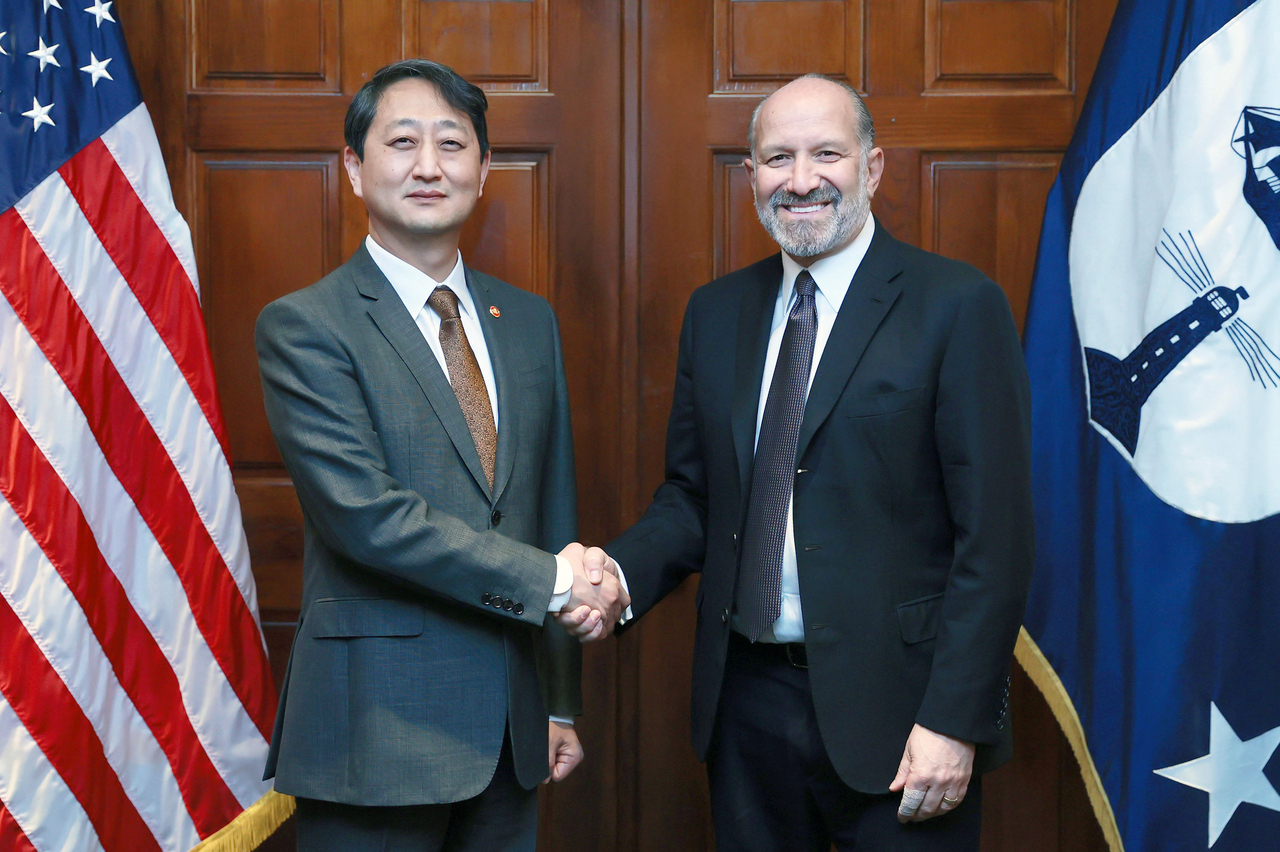
South Korean Industry Minister Ahn Duk-geun has requested a tariff exemption from the US but has also made clear that if President Donald Trump goes ahead with his tariff plans, Korean firms should not be placed at a disadvantage compared to other countries.
Ahn made these requests to his US counterparts during his visit to Washington last week, where he met with US Secretary of Commerce Howard Lutnick, US Trade Representative Jamieson Greer and Interior Secretary Doug Burgum, among others.
His trip was the first visit to Washington by a ministerial official from Seoul since President Trump took office on Jan. 20. It comes as the Trump administration announced 25 percent tariffs on all steel and aluminum imports and plans to impose “reciprocal” tariffs and additional duties on cars, semiconductors and pharmaceuticals.
With Trump's reciprocal tariffs with trading partners expected to take effect April 1, export-dependent Korean companies are bracing for potential repercussions.
“I have relayed Korean companies’ concerns over tariffs and requested exemptions,” Ahn told reporters on Friday in Washington, following his meeting with officials. “Through a working-level consultation channel, we plan to continue discussions to minimize damages to Korean companies.”
During his meeting with Lutnick, Ahn reiterated that Korea’s primary goal is to secure tariff exemptions. However, if the US proceeds with its planned tariffs, Korea hopes to ensure that its companies do not face harsher conditions than companies from other countries, according to sources.
In response, Lutnick is said to have emphasized the need to address the US trade deficit and expressed interest in related cooperation with Korea, but he did not provide details on the specific tariff measures.
Ahn also conveyed Korea’s intention to expand imports of US energy resources, including natural gas and crude oil, to help balance trade between the two countries.
Additionally, according to local media outlets, Ahn explained to Lutnick that when Hyundai’s new Georgia plant begins operations next month, it could considerably reduce the US trade deficit with Korea.
Trump called for the tariffs on Feb. 10, rolling back exemptions for Canada, Mexico the EU, UK, Japan, South Korea and other allied nations, arguing the need to reduce US trade deficit. Concerns among government and company officials here are that Korea, which the US currently runs eighth largest trade deficit, could face heavier country-specific tariffs.
The two sides also discussed potential cooperation in shipbuilding and other strategic industries.
The minister, in a separate meeting with Greer and Burgum, who also serves as Trump's energy czar, discussed bolstering bilateral cooperation in energy and trade.
Upon returning to Korea on Sunday, Ahn told reporters that discussions with the US were taking place in a "friendly atmosphere," stressing the importance of maintaining discussions as Washington considers various measures.
Ahn noted that while in Washington, he emphasized the close bilateral cooperation and significant investments by Korean firms, in requesting tariff exemptions.
sahn@heraldcorp.com




